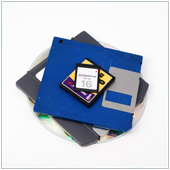
Believe it or not, this is already starting to happen! As with any device, users should be backing up the data on their tablets. Here are three different methods you can use to backup your Android tablet.
Method 1: built-in backup
If your tablet is running Android OS 4.0 (Ice Cream Sandwich), you can backup tablet settings and application data to Google’s servers by opening Settings, scrolling down to Personal and selecting Backup & reset. If you can’t find Personal, open Settings and scroll down to Privacy. In both windows, select Backup my data. Your data will be stored on Google’s servers and if you select Automatic Restore, your tablet will automatically restore data when you instruct it to do so, for instance after a factory reset.
Method 2: use a third party app
For many, the built-in backup is enough, but, there are some users who want a more robust option, or would prefer to backup their data onto a hard drive. To do so, you can use a third party app like MyBackup Pro, which allows you to backup both applications and data. The data is stored on your tablets SD card, or on a server. When you need to restore your device, reinstall the application and press Restore. This option is also referred to as local backup.
Method 3: cloud backup
If you’re not too picky about your applications, but are more worried about documents, you could back them up using a cloud service like Google Drive or Dropbox. These services sync with your tablet and will store important documents in the cloud, giving you access regardless of the device you’re using. To use these apps, first install them and then go to Settings followed by Accounts and sync. Tap the program name to be given upload options.
We usually recommended that tablet owners use method 1, at the very least. For maximum effectiveness, use a combination of all three. If you’re unsure of which method you should be using for your Android tablets, give us a call. We can help.

